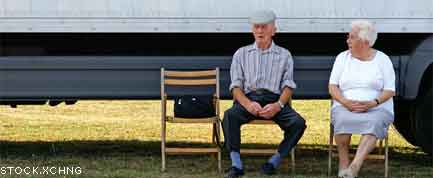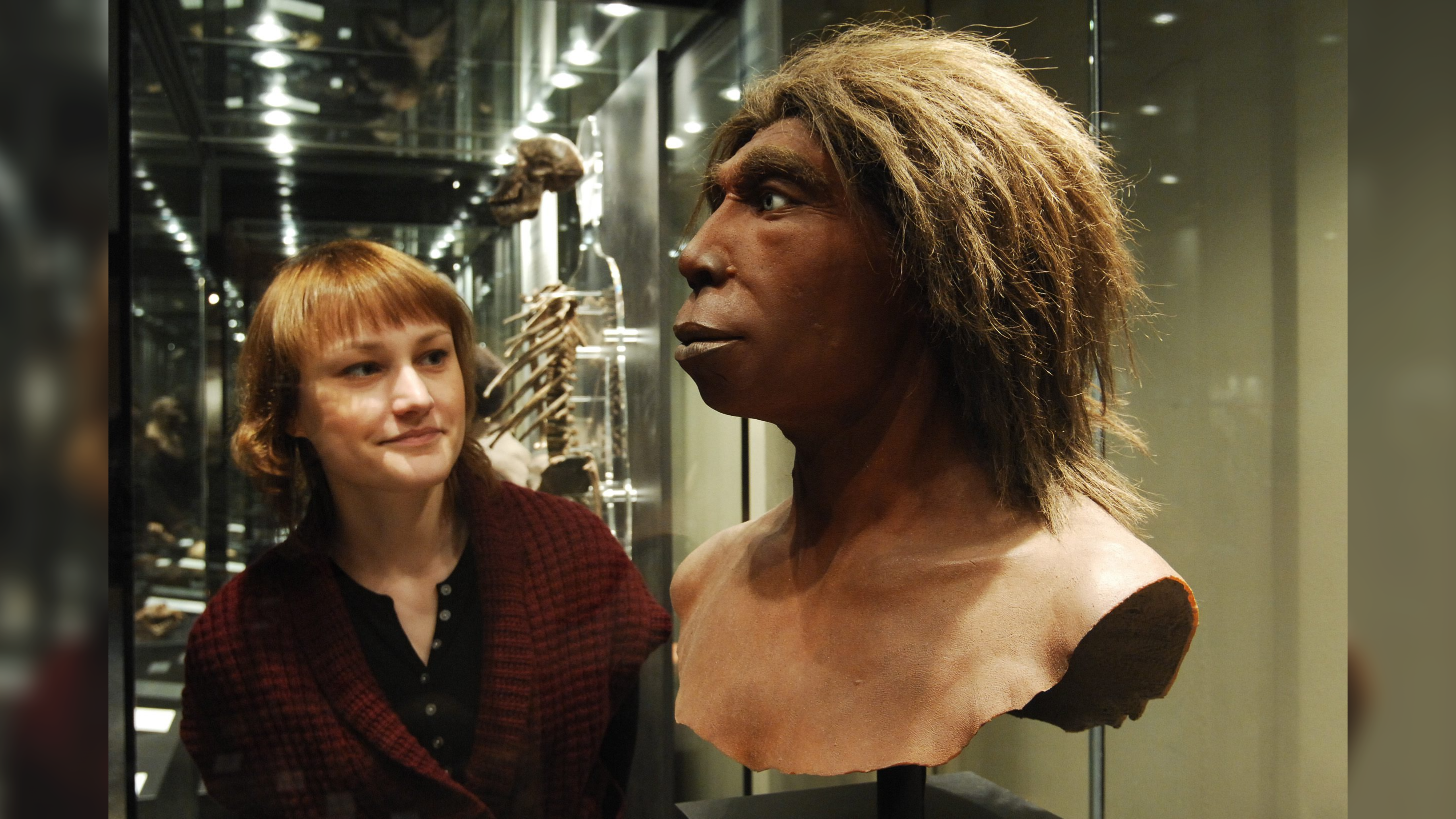One Key Found for Living to 100

Get the world’s most fascinating discoveries delivered straight to your inbox.
You are now subscribed
Your newsletter sign-up was successful
Want to add more newsletters?
Join the club
Get full access to premium articles, exclusive features and a growing list of member rewards.
Scientists have zeroed in on one apparent key to long life: an inherited cellular repair mechanism that thwarts aging and perhaps helps prevent disease. Researches say the finding could lead to anti-aging drugs.
The study involves telomeres, the ends of chromosomes that have been likened to the plastic tips that prevent shoelaces from unraveling. Telomeres were already known to play a key role in aging, and their discovery led to this year's Nobel Prize in medicine.
The new study, which focused on Ashkenazi Jews, finds those who lived the longest had inherited a hyperactive version of an enzyme called telomerase that rebuilds telomeres.
In effect, centenarians tend to have a top-notch body mechanic at work 24/7 repairing the hardware that runs the body, versus a normal person whose body's cellular control center is left to wear out with time.
"Humans of exceptional longevity are better able to maintain the length of their telomeres," said Yousin Suh, associate professor of medicine and of genetics at the Albert Einstein College of Medicine at Yeshiva University. "And we found that they owe their longevity, at least in part, to advantageous variants of genes involved in telomere maintenance."
The results are detailed this week in the Proceedings of the National Academy of Sciences.
Telomeres are short bits of specialized DNA that cap the chromosomes, which tell a cell what to do. Over time, cells divide over and over to keep the body alive. But with each cell division, telomeres get shorter. When they become too short, the cell stops dividing and lapses into a state called cell senescence. Vital tissues are no longer produced, and organs start to fail.
Get the world’s most fascinating discoveries delivered straight to your inbox.
All this was known, and telomeres have been a focus of anti-aging research for years. However, no silver bullets have been discovered to increase the average lifespan.
In the new study, Suh and colleagues studied Ashkenazi Jews, a homogeneous population whose genetics are well-studied. Three groups were part of the research: A very old (average age 97) but healthy group of 86 people; 175 of their offspring; and a control group of 93 offspring of parents who lived a normal lifespan.
"Our research was meant to answer two questions," explained said Einstein researcher Gil Atzmon in a statement. "Do people who live long lives tend to have long telomeres? And if so, could variations in their genes that code for telomerase account for their long telomeres?"
"Yes" on both accounts, the scientists conclude.
The old crowd had "inherited mutant genes that make their telomerase-making system extra active and able to maintain telomere length more effectively," the researchers write. "For the most part, these people were spared age-related diseases such as cardiovascular disease and diabetes, which cause most deaths among elderly people."
"Our findings suggest that telomere length and variants of telomerase genes combine to help people live very long lives, perhaps by protecting them from the diseases of old age," Suh said. "We're now trying to understand the mechanism by which these genetic variants of telomerase maintain telomere length in centenarians. Ultimately, it may be possible to develop drugs that mimic the telomerase that our centenarians have been blessed with."
- Top 10 Immortals
- Video - Why We Age: A Genetic Clue
- Anti-Aging News
Robert is an independent health and science journalist and writer based in Phoenix, Arizona. He is a former editor-in-chief of Live Science with over 20 years of experience as a reporter and editor. He has worked on websites such as Space.com and Tom's Guide, and is a contributor on Medium, covering how we age and how to optimize the mind and body through time. He has a journalism degree from Humboldt State University in California.
 Live Science Plus
Live Science Plus











